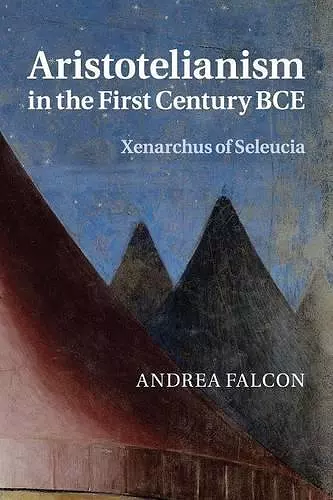Aristotelianism in the First Century BCE
Xenarchus of Seleucia
Format:Paperback
Publisher:Cambridge University Press
Published:15th Sep '16
Currently unavailable, and unfortunately no date known when it will be back
This paperback is available in another edition too:
- Hardback£57.00(9780521876506)

A full study of the surviving evidence for Xenarchus of Seleucia, one of the earliest interpreters of Aristotle.
This book examines the reception of Aristotle in antiquity through a full study of the surviving evidence for Xenarchus of Seleucia, an early interpreter. It argues that the novelty and audacity of Aristotle's philosophy are fully revealed by investigating its often mixed reception in the early stages of the Peripatetic tradition.This book is a full study of the remaining evidence for Xenarchus of Seleucia, one of the earliest interpreters of Aristotle. Andrea Falcon places the evidence in its context, the revival of interest in Aristotle's philosophy that took place in the first century BCE. Xenarchus is often presented as a rebel, challenging Aristotle and the Aristotelian tradition. Falcon argues that there is more to Xenarchus and his philosophical activity than an opposition to Aristotle; he was a creative philosopher, and his views are best understood as an attempt to revise and update Aristotle's philosophy. By looking at how Xenarchus negotiated different aspects of Aristotle's philosophy, this book highlights elements of rupture as well as strands of continuity within the Aristotelian tradition.
'Xenarchus of Seleucia was a contemporary of Strabo who was active as a teacher of philosophy in Alexandria, Athens and Rome at the time of Augustus. Falcon's study is the first monograph to be wholly dedicated to this Peripatetic writer, from whom a few fragments survive … a valuable tool for the study of a period of philosophical activity that is still surrounded by mystery, and contributes to the better understanding of the hermeneutical strategies towards Aristotle's text that preceded the development of the commentary tradition in the Imperial period.' Bryn Mawr Classical Review
ISBN: 9781107525863
Dimensions: 228mm x 152mm x 13mm
Weight: 350g
240 pages